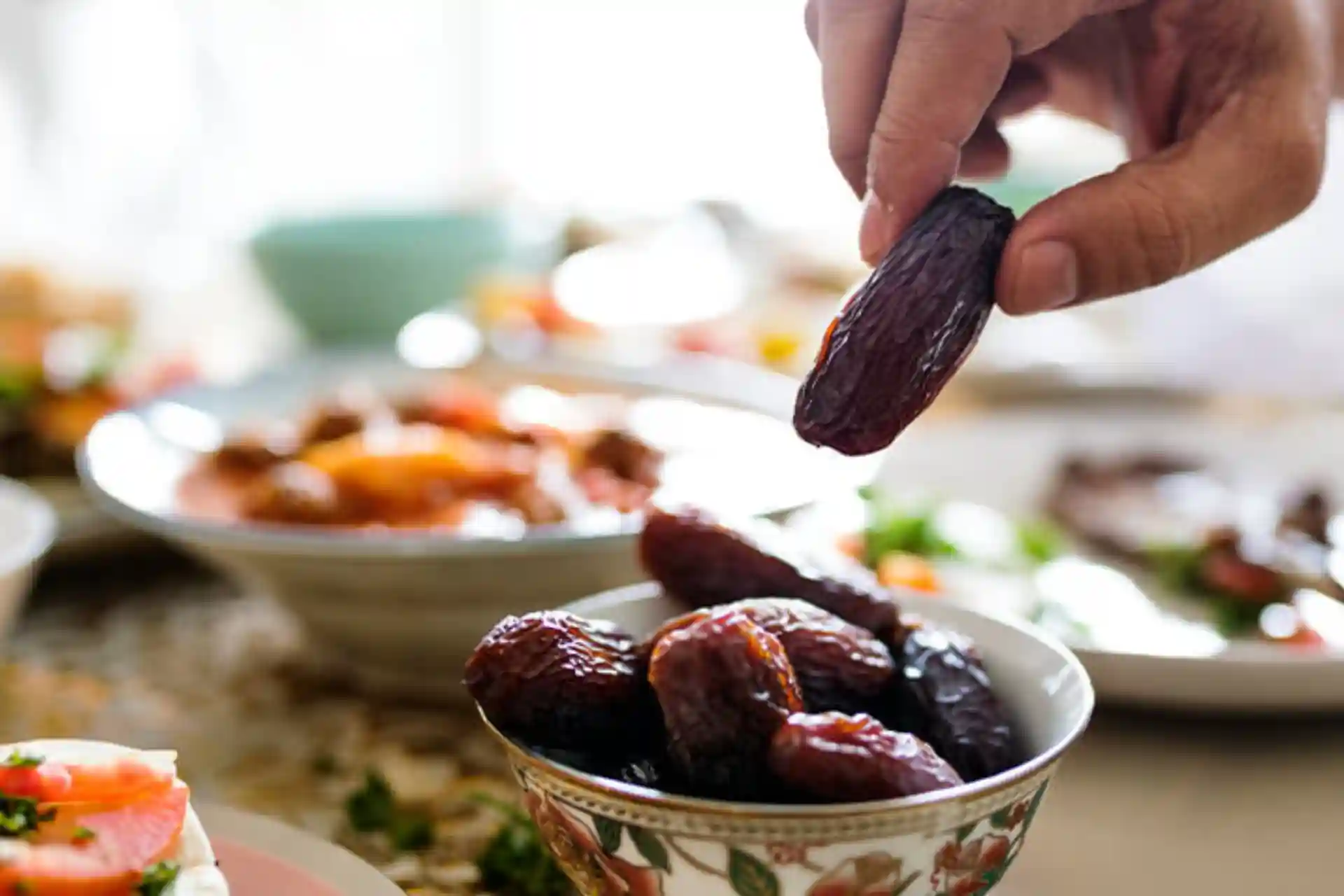05.03.2025 05:00
1471
What changes occur in our bodies during Ramadan?
Ramadan fasting has a positive effect on human health not only in terms of spiritual education, but also in terms of physical and physiological. During fasting, a number of changes occur in the body: the digestive system rests, cells are cleansed, hormonal balance is restored, and overall health improves. This article presents the gradual effects of fasting on the body, its medical aspects, and recommendations for maintaining proper physical condition.
Phase 1: Glucose sources are depleted (1–2 days)
During the first few days of fasting, the body uses up its glucose reserves throughout the day. During this phase:
Blood sugar levels decrease.
The liver begins to break down glycogen, which it has stored as a reserve.
Headache, weakness, and mild irritability may occur.
Recommendations:
For iftar and suhoor, you should eat bone broth, dried fruits, and lean carbohydrates (e.g., brown bread, brown rice).
It is very important to consume nutritious proteins and fats during pregnancy.
Phase 2: Fat Burning (3–7 days)
After a few days, the body begins to burn fat as an energy source. This process:
It initiates a state of ketosis – the body uses ketones as an energy source for cells.
Body weight decreases.
The immune system is strengthened.
Recommendations:
During iftar, you should reduce your intake of high-fat foods, but eat healthy fats (e.g., olive oil, nuts).
It is recommended to drink enough water to maintain electrolyte balance.
Stage 3: Cell renewal (8–15 days)
During the second week of fasting, the process of autophagy, which is the self-cleaning mechanism of cells, increases. During this stage:
Old and damaged cells are destroyed and new cells are formed.
The body gets rid of toxins.
The stomach and intestines become healthier.
Recommendations:
It is important to eat foods rich in protein (cottage cheese, eggs, meat).
It is recommended to take vitamins to restore the body.
Stage 4: Hormonal balance and immune enhancement (16–30 days)
In the final stage, the body adapts to the fasting state. During this stage:
Insulin levels decrease and insulin resistance improves.
Growth hormone levels increase, which improves muscle and skin condition.
Sleep and overall mood improve.
Recommendations:
You should engage in light physical exercise (walking, light stretching).
Heavy meals should be avoided after iftar.
Medical benefits of fasting
Improved cardiovascular system: Blood fat and cholesterol levels decrease.
Reduced risk of diabetes: Insulin sensitivity increases.
Cellular regeneration: The process of autophagy allows the body's cells to rejuvenate.
Improved gastrointestinal health: The digestive system is relieved of its burden and begins to function more efficiently.
Phase 1: Glucose sources are depleted (1–2 days)
During the first few days of fasting, the body uses up its glucose reserves throughout the day. During this phase:
Blood sugar levels decrease.
The liver begins to break down glycogen, which it has stored as a reserve.
Headache, weakness, and mild irritability may occur.
Recommendations:
For iftar and suhoor, you should eat bone broth, dried fruits, and lean carbohydrates (e.g., brown bread, brown rice).
It is very important to consume nutritious proteins and fats during pregnancy.
Phase 2: Fat Burning (3–7 days)
After a few days, the body begins to burn fat as an energy source. This process:
It initiates a state of ketosis – the body uses ketones as an energy source for cells.
Body weight decreases.
The immune system is strengthened.
Recommendations:
During iftar, you should reduce your intake of high-fat foods, but eat healthy fats (e.g., olive oil, nuts).
It is recommended to drink enough water to maintain electrolyte balance.
Stage 3: Cell renewal (8–15 days)
During the second week of fasting, the process of autophagy, which is the self-cleaning mechanism of cells, increases. During this stage:
Old and damaged cells are destroyed and new cells are formed.
The body gets rid of toxins.
The stomach and intestines become healthier.
Recommendations:
It is important to eat foods rich in protein (cottage cheese, eggs, meat).
It is recommended to take vitamins to restore the body.
Stage 4: Hormonal balance and immune enhancement (16–30 days)
In the final stage, the body adapts to the fasting state. During this stage:
Insulin levels decrease and insulin resistance improves.
Growth hormone levels increase, which improves muscle and skin condition.
Sleep and overall mood improve.
Recommendations:
You should engage in light physical exercise (walking, light stretching).
Heavy meals should be avoided after iftar.
Medical benefits of fasting
Improved cardiovascular system: Blood fat and cholesterol levels decrease.
Reduced risk of diabetes: Insulin sensitivity increases.
Cellular regeneration: The process of autophagy allows the body's cells to rejuvenate.
Improved gastrointestinal health: The digestive system is relieved of its burden and begins to function more efficiently.
Recommendations for maintaining good physical condition
✅ Drink enough water during suhoor and iftar.
✅ Don't forget to consume salt and minerals.
✅ Eat sugar and carbohydrates in moderation.
✅ Choose healthy fats and protein sources.
✅ Make sure you get enough sleep.
✅ Avoid strenuous exercise.
Conclusion
Fasting during Ramadan has great benefits not only for spiritual but also for physical health. It cleanses the body of harmful substances, restores the digestive system, and strengthens the immune system. The positive effects of fasting can be further enhanced through proper nutrition and physical activity.

